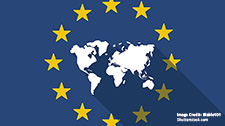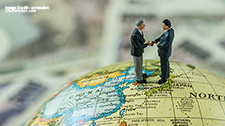Changing Global Orders and Europe’s Role

Niklas Swanström and Stephen Crowther
Abstract
The United States and Europe have been perceived as deteriorating international actors, particularly when contrasted to China which has been seen as a new force under its all-powerful ruler; Xi Jinping. The political and economic dominance of the U.S. may no longer be guaranteed, but it is debatable whether this has set the stage for a Chinese takeover or if the global liberal order itself is truly threatened. Chinese efforts to engage with the international community and lead on an array of global concerns can also be viewed in a positive light. Furthermore, Beijing and the West are not necessarily competing normative powers and it would be far more constructive to frame this as an evolvement of the established order rather than a prelude to its eventual collapse.
Related Publications
-
The Political Split at the Heart of Taiwan’s Struggle against Foreign Disinformation
Taiwan’s struggle against foreign disinformation and concerns about China’s impact on its 2024 election has received much international attention recently. This issue brief examines the domestic and international politics behind […]
-
ISDP Annual Report 2023
ISDP’s Annual Report for the year 2023. We look back on 2023, a year in which tensions and conflicts captured the strategic space in ISDP’s focus areas, making headlines around […]
-
Messaging Mayhem: The EU’s Struggle for Clarity on Israel-Palestine
Few long-standing conflicts evoke such intense discussions and foreign policy debates as Israel-Palestine, be it within or between the European Union’s 27 member states – informed by differing historical and […]
-
An Interview with Professor Torbjörn Lodén: EU and U.S. Relations with China in Retrospect and Looking Ahead
The Institute for Security & Development Policy (ISDP) has for the past three years had the honor and privilege of Professor Torbjörn Lodén serving as its Head of the Stockholm […]
-
Risk Reduction and Crisis Management on the Korean Peninsula
The situation on the Korean Peninsula is inherently intertwined with the growing instability of the East Asian security environment, where high tensions significantly increase the risk of unintended incidents and armed […]




